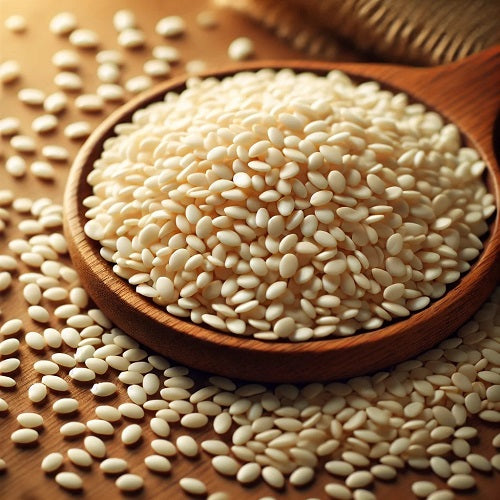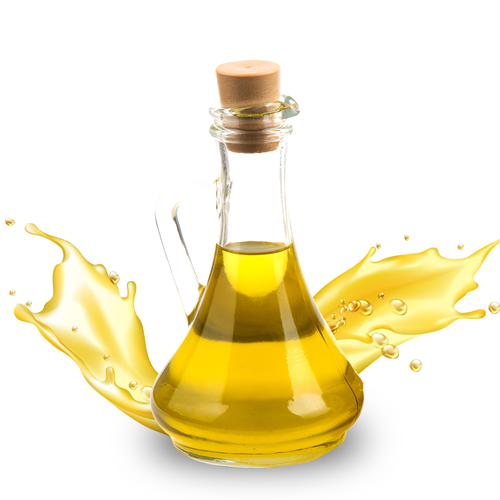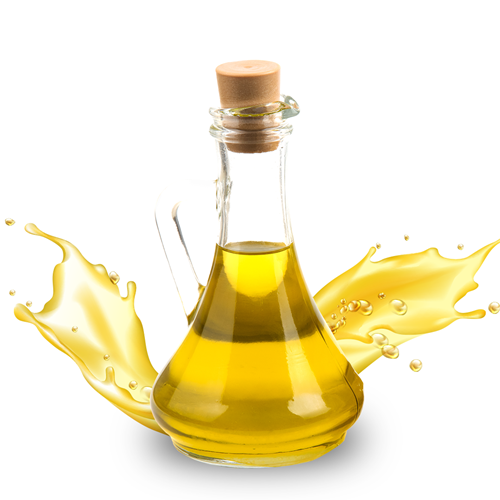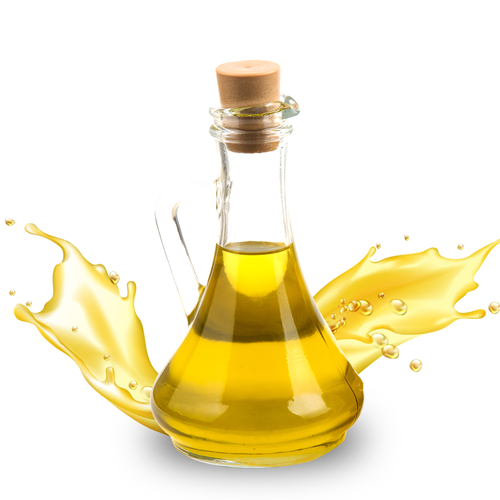Menu
Add description, images, menus and links to your mega menu
A column with no settings can be used as a spacer
Link to your collections, sales and even external links
Add up to five columns
Add description, images, menus and links to your mega menu
A column with no settings can be used as a spacer
Link to your collections, sales and even external links
Add up to five columns
LOOKING FOR BULK INGREDIENTS PRICING?

Benefits of Sesame seeds - Wholesale B2B Bulk Suppliers in Europe
Sesame Seeds: Ancient Seeds of Health, Flavor, and Vitality
Sesame Seeds, one of the oldest cultivated oilseeds known to humanity, have been prized for thousands of years for their rich flavor, nutritional value, and therapeutic properties. These tiny seeds come in a variety of colors—white, black, brown, and golden—each offering a distinct taste and health profile. Whether sprinkled on dishes, pressed into oil, or ground into paste (tahini), sesame seeds continue to play a vital role in cuisines and traditional medicine systems around the world.
Botanical Profile
-
Botanical Name: Sesamum indicum
-
Family: Pedaliaceae
-
Plant Part Used: Seeds
-
Color: White, black, brown, or golden
-
Taste: Nutty and slightly sweet
-
Common Names: Til (Hindi), Gingelly, Benne Seeds, SimSim
Nutritional and Health Benefits of Sesame Seeds
-
Excellent Source of Plant-Based Calcium
Sesame seeds are among the richest non-dairy sources of calcium, essential for bone health, nerve function, and muscle contraction. -
Rich in Healthy Fats and Antioxidants
They contain heart-healthy monounsaturated and polyunsaturated fats, along with powerful antioxidants like sesamin and sesamol, which help fight oxidative stress and inflammation. -
Supports Heart Health
Regular consumption of sesame seeds may help reduce bad cholesterol (LDL) and triglyceride levels, supporting overall cardiovascular function. -
Enhances Skin and Hair
The natural oils in sesame seeds are rich in vitamin E, zinc, and B-complex vitamins, which nourish the skin, improve complexion, and strengthen hair from the roots. -
Aids Digestion and Gut Health
High in dietary fiber, sesame seeds support regular bowel movements and promote a healthy digestive system. -
Balances Hormones and Supports Reproductive Health
The lignans and phytoestrogens in sesame seeds are thought to help balance hormones, especially in women during menopause. -
Boosts Immunity
Packed with zinc, selenium, and copper, sesame seeds contribute to immune defense and help the body resist infections.
Culinary and Traditional Uses
-
Sprinkled on breads, salads, and stir-fries for flavor and crunch
-
Used to make tahini (sesame paste) or sesame oil
-
Commonly added to ladoos, chikkis, and other traditional Indian sweets
-
Used in Ayurvedic and traditional Chinese medicine for nourishing the body
-
Roasted, ground, or soaked to improve digestibility and enhance nutrient absorption
How to Use
Sesame seeds can be eaten raw, toasted, or ground. Soaking or lightly roasting them before consumption enhances flavor and nutrient availability. A daily intake of 1–2 tablespoons is generally considered beneficial.
Precautions
While sesame seeds are highly nutritious, they are also a known allergen for some individuals. People with seed allergies should avoid them. Also, due to their calorie-dense nature, moderation is key for those watching their weight.
Final Thoughts
Sesame seeds are small but mighty when it comes to nutrition and health benefits. From improving bone health to supporting heart function and glowing skin, these ancient seeds deserve their reputation as a timeless superfood. Incorporate sesame seeds into your daily diet to enjoy their nutty flavor and multitude of wellness benefits naturally.
For bulk orders and inquiries, visit Reveda - Sesame seeds
BUY ONLINE IN USA FROM REVEDA - The leading manufacturer B2B Bulk Wholesale Supplier of Sesame seeds in Europe.
Also in Reveda: Health & Wellness

Benifits Of Omega-3 Fish Oil EE - 460 MG/G EPA & 180 MG/G DHA - Wholesale B2B Bulk Suppliers in USA
Read More
SUBSCRIBE NOW ...
Don't miss to get latest updates on sales, new releases and promotions

